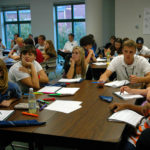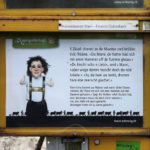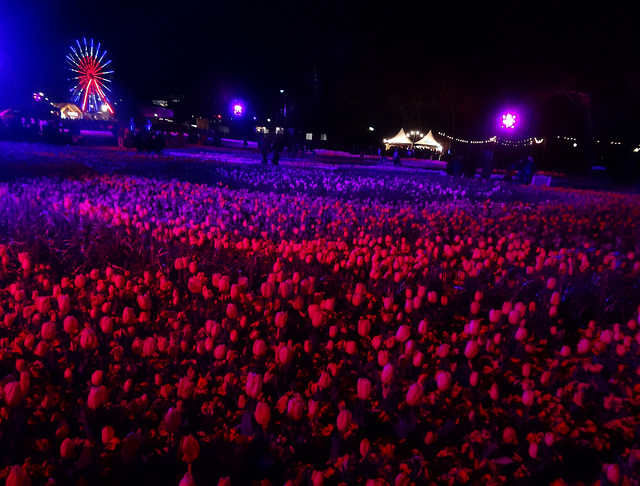
“Australia. It has everything, and they speak English” – Murray Walker, former Formula 1 broadcast commentator
Australia has a lot to offer foreign exchange students.
It is a safe and peaceful place to live, with a high standard of living and well-resourced schools and health care facilities.
It has a beautiful natural environment – encompassing unspoilt beaches, rain forests, vast deserts, and a snowy alpine region – as well as famous man-made structures such as the Sydney Opera House.
Exchange students in Australia learn English – the world language. Being almost all descended from migrants themselves, Australians welcome foreigners and are tolerant and understanding of those who are learning English.
This post will tell you everything you need to know about being a foreign exchange student in Australia.
High school in Australia
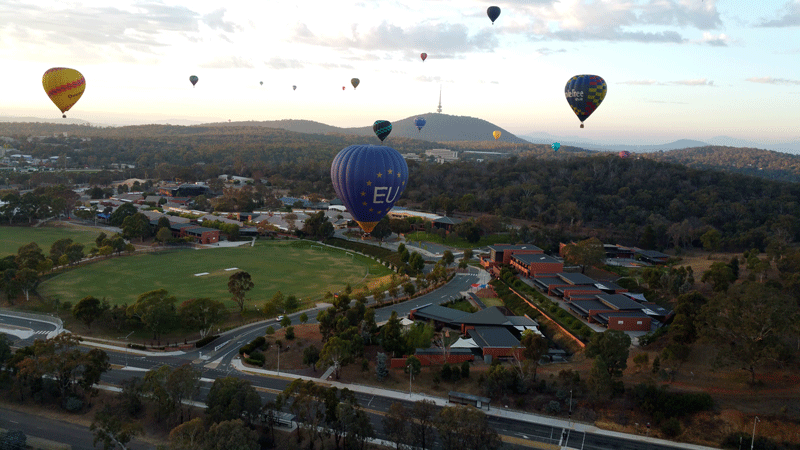
As an exchange student in Australia, you will attend a high school and will most likely be enrolled in “Year 11” – the second-last year of school – or “Year 12” – the final year. The Australian school year runs from late January until mid-December.
Subject choice
In Australia, there is no “streaming” of students into different schools depending upon whether they intend to study at university or not, as in some European countries. Everyone attends the same school regardless of their intended career path.
This means that most schools offer a wide range of elective subjects. It is usually compulsory for all students to study English and mathematics. Otherwise, students are generally free to select subjects which interest them and/or which are necessary for their intended career.
Shortly after your arrival, your host family or exchange program representative will take you to your school for the purposes of meeting the school principal and enrolling you in your classes. You will most likely have to study English and mathematics along with everyone else. Otherwise, you should have a lot of freedom in choosing the subjects you study – history, foreign languages, art, music, and so on.
Another thing that may be different to school in your host country is that Australian students generally only study a few subjects in the final couple of years of school. In the Australian Capital Territory, where I live, students in their final two years of school usually only study five different subjects. The flip side is that they tend to study those subjects in great depth.
Government and non-government schools
A slightly unusual feature of the Australian school system is that a large number of students – about 40% – attend non-government (private) high schools.
Your exchange organisation or host family may arrange for you to go to a government or non-government school. Both types of school are generally of a high standard in Australia.
School uniforms
Most Australian high school students wear school uniforms. It’s likely that you will have to wear a uniform to school, as well. If this is the case, your host family or exchange organisation will help you with some or all of the costs of purchasing the uniform.
Your school uniform might take a bit of getting used to, but it will also have real benefits. For starters, you won’t ever have to spend time thinking about what to wear to school. You will save money by wearing the same thing week in, week out and not having to purchase new clothes all the time. Wearing a uniform will also mean that you will blend in with your classmates from day one.
Extra-curricular activities
Most Australian high schools offer extra-curricular activities that their students can get involved in. At government schools, this usually includes dance groups, band or orchestra, and musical theatre groups. At non-government schools, it normally also includes sporting teams.
Getting involved in these activities is a great way for you to meet and socialise with others from your school – particularly as there is no language barrier involved.
Australian English
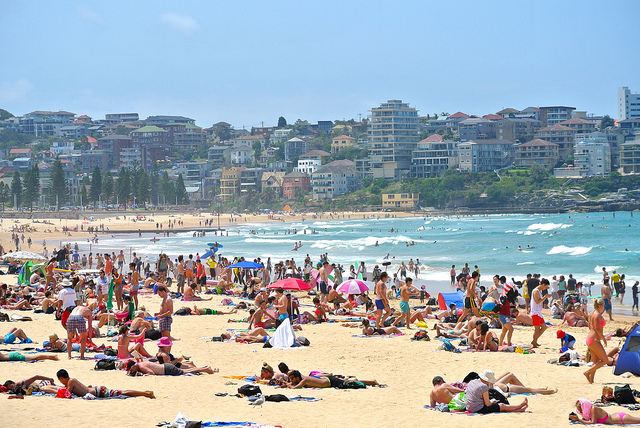
Australia was a British colony until 1901, and the main language spoken in Australia is English.
Australian English evolved from British English. With a few exceptions, the spelling of Australian English usually follows the British format – for example, Australians write “colour” rather than “color” and “mum” rather than “mom”.
The standard dictionary for Australian English is the Macquarie Dictionary, which you can purchase from virtually any book store in Australia.
At the beginning of your exchange, you may find Australians difficult to understand when they talk. They tend to speak more quickly and unclearly than British or American people. However, you’ll soon adapt.
Social etiquette
While Australians have a reputation for being laid back and informal, they are actually relatively socially conservative. If you want to fit in as a part of your host family and school community, you will need to be sensitive to, and pick up on, Australian social etiquette.
Bear the following in mind.
- Swearing – nearly all Australians consider swearing impolite. Never swear in front of, or even within earshot of, your host parents, school teachers, or other authority figures.
- Nudity – Australians tend to stay covered up more than Europeans. Females usually keep their tops on at the pool or beach.
- Australians usually consider it impolite to discuss political or religious views, except in family situations or with very close and trusted friends.
- Australians generally are tolerant of homosexuality, but consider sexuality to be a private matter. If you happen to be gay, avoid any “in your face” displays of gay pride.
- If you go out to eat with friends or other “equals” (such as your host siblings), the usual practice is to “split the bill” – ie, for everyone to pay for the items he or she has ordered and eaten – rather than one person paying for the whole bill. Tipping is generally optional in Australia.
- Australians tend to value egalitarianism and dislike flashy displays of wealth and status. If you’re lucky enough to have a fancy new iPhone, or a $2000 watch, or your parents have a holiday home on the French Riviera, don’t make a big deal of it.
Money management
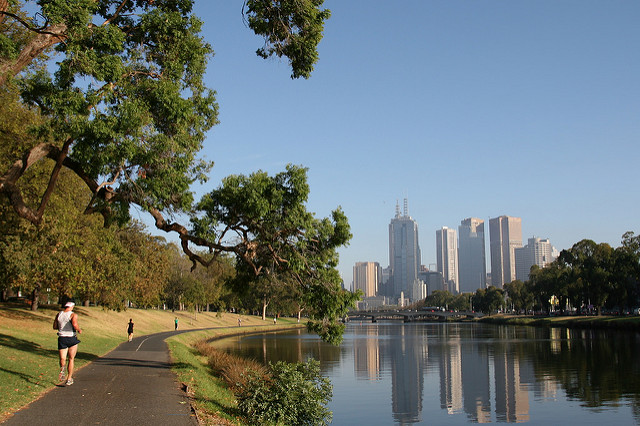
Your host parents will help you to set up a bank account during your first couple of days in Australia.
All Australian bank account holders receive a debit card to use at automatic teller machines (ATMs). It can take 7-10 days for the bank to generate the card and send it to you. I recommend bringing a small amount of Australian cash with you – perhaps $200 – to use until you receive your debit card.
The banking system in Australia is robust and modern. There are automatic teller machines (ATMs) for withdrawing money in virtually every town and suburb, so you should have no problem with accessing your money.
The Australian banks also have a proprietary payment system known as EFTPOS (electronic funds transfer at point of sale). The EFTPOS system allows you to use your ATM card like a credit card. When you go to make a purchase, you swipe your debit card at the EFTPOS terminal located next to the cash register and enter your PIN. The money to pay for your purchase transfers from your bank account directly into the store’s bank account.
Your parents at home should be able to transfer money from overseas directly into your Australian bank account using the international SWIFT system. You can obtain your Australian bank’s SWIFT number and other relevant details when you first set up your account.
Cost of living in Australia
When it comes to the cost of living in Australia, there is good and bad news.
The bad news is that Australia is one of the most expensive countries on earth to live in. The cost of living in Australia is generally comparable to that in Scandinavia, Japan or Switzerland. It is far higher than the cost of living in most parts of the United States, Canada and Europe.
The good news is that your host family will meet many of your biggest costs – including most of your food, accommodation and transport expenses. You can minimise many of your remaining expenses by bringing things with you, or purchasing online from stores like Amazon.com.
What to bring
Some of the most expensive items in Australia, relative to the rest of the world, are listed below. I recommend that you bring these items with you, if possible, rather than planning to purchase them in Australia.
- Branded clothing and footwear – If you are happy to wear inexpensive, no-name, department-store branded stuff, you’ll be well catered for in Australia at a low price. If you prefer name brand items, such as Wrangler jeans, Ralph Lauren polos, and Nike or Adidas sports wear, you’ll notice that those are extremely expensive in Australia. Shoes of all kinds – sports, casual and formal – are also relatively expensive. You should either stock up on such items before leaving for Australia, or set up an Amazon account and know your sizing well.
- Electronica – Things like smart phones, digital cameras and laptops are relatively more expensive in Australia than elsewhere. Bring your own rather than purchasing them in Australia.
- Books – Books are more expensive in Australia than in many other countries. If you are a big consumer of literature, get a Kindle, or open an Amazon account for purchasing hard copies.
- Cosmetics and toiletries – Obviously, it’s impractical to schlepp a year’s worth of cosmetic supplies across the world. But if you have room, bring a good supply of small, high-value items such as razor blades, cologne/perfume, toothbrush heads if you use an electric toothbrush, and make up. Such items are relatively expensive in Australia.
Typical “shopping basket” of expenses
Here are the costs of an imaginary “shopping basket” of items purchased in Australia, to give you an idea of your potential costs of living. (All costs are in Australian dollars):
- Mobile phone plan – Unlimited national calls and text, 2GB data = $30 per 28 days (Vodafone Combo $30 recharge)
- iTunes music = $1.69 per track
- Magazines = $7-$12 depending upon size and subject matter
- 600 ml Coke Zero = $3.60
- Medium Big Mac Meal = $8-$10 (variable depending upon location)
- Body spray / deodorant = $6.00 (Rexona 200gm varieties)
- T-shirt = $50-60 (Superdry, Abercrombie and Fitch, or similar)
- Jeans = $100-120 (Levis 500 series)
Getting around

In Australia, road transport rules. The vast majority of Australians get around in their own cars, and buses are their usual choice of public transport. The long distances between state capitals mean that Australians usually fly interstate.
There are well-developed train networks in the state capitals – especially Sydney – but outside the major population centres, trains are few and far between. Again, people tend to travel long distances by car or bus.
Cycling is popular in big cities, but the spread-out nature of Australian cities means that bicycle transport is only practical for people whose homes are relatively close to where they work or study, or for short-distance local trips.
What does this mean for you as an exchange student?
- You’ll most likely travel to school by bus (train if you are in Sydney) or your host family’s car, or that you’ll ride if the school is close enough.
- It’s likely that you’ll travel long distances by bus or car, or plane for distances greater than about 300km.
- You’ll probably undertake local trips using your bike or that your host family will drive you.
Australian food
Australians cook and eat a wide variety of foods, reflecting the multicultural nature of Australian society. Asian and southern European influences are particularly strong.
Vegetarianism is not as prevalent in Australian society as in, say, Europe. However, there is a wide variety of vegetarian foods available in Australia, as well as vegetarian-specific restaurants in the larger cities.
Foods for people with specific allergies or intolerances (for example, gluten or lactose intolerance) are widely available in Australia. Your host family should be able to accommodate any specific dietary needs you have.
Australian culture

Sport
It should be possible for you to continue almost any sport you currently participate in – or try any new sport you’re interested in – during your student exchange in Australia.
Australians play a wide range of sports, including sports with British (rugby league, rugby union, cricket), American (baseball, basketball) and European (soccer, cycling, mountain biking) heritage. These are mostly organised in clubs outside school. Your host parents will be able to help you get involved in any sport you are interested in.
Given the generally sunny Australian climate, swimming, surfing and tennis are popular in Australia. There is also a small alpine district in south-eastern New South Wales where skiing and snowboarding are possible during the winter months.
Music
You’ll easily get your fill of music in Australia.
There are at least two or three FM radio stations available in every location in Australia, including a commercial station playing popular (top 100-style) music.
Australia also has a small but enthusiastic home-grown music scene. Government-run youth radio station Triple J is available in most locations around Australia and has a heavy emphasis on Australian music.
In the paid music space, iTunes, Pandora and Spotify are all available from Australia. The biggest retailer of physical CDs in Australia is called JB Hi-Fi, and has locations all over the country.
Communications
Internet
Nearly all Australians have access to high-speed broadband internet at home, and it’s almost certain that your host family will have a good, high-speed connection that you can use.
Furthermore, there are an increasing number of public places such as shopping centres which have “free” Wi-Fi. Your high school will most likely have its own Wi-Fi network for students to use.
In short, you should have no problems with connecting to the internet whilst on exchange in Australia.
Mobile telephones
There are three main mobile phone network operators in Australia, called Telstra, Optus and Vodafone. You can use this guide to Australian phone networks and frequencies to help you work out whether your existing mobile phone will be compatible with an Australian mobile phone network. Your host family will help you to get connected to a mobile network during your first couple of days.
Climate
Australia generally has a warm climate, but many locations have a high diurnal range. For example, Canberra usually has a long stretch of days in summer where the temperature exceeds 35 degrees celsius. It also usually has a long stretch of nights in winter where the temperature is below freezing.
Many visitors are surprised at how cold parts of Australia can be in the winter months. Even beachside locations or elevated parts of warm states such as Queensland can get extremely cold, with temperatures close to zero in winter.
Make sure you do your research before departure. Find the Wikipedia page for the city or region you’ll be staying in, and pay particular attention to the table of average temperatures. Pack accordingly.
Risks and hazards
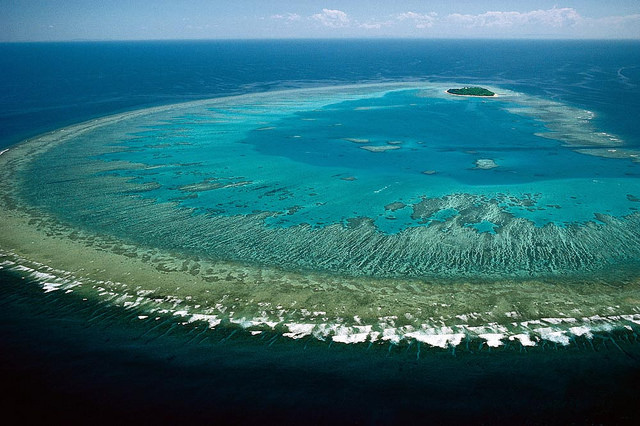
Australia is generally a safe place to live. There are a few things to be aware of, as follows:
Health risks
The biggest health risk you’ll probably face whilst in Australia is the sun. The sun is particularly strong in Australia and you can burn in a matter of minutes at the height of summer. I recommend that you apply 50-factor sunscreen every day in summer. You should definitely do so if you’ll be playing sport, going to the beach or spending long periods outside.
A related issue is heat exhaustion or heat stroke. It is best to avoid exercising in the middle of the day in the summer months, and important to stay hydrated at all times.
Australia is mildly famous for having many venomous or other dangerous animals. The risk of you being affected by any poisonous snakes or spiders, or sharks, during your exchange in Australia is low. However, there are some localised animals – such as crocodiles and Irukandji jellyfish – which cause serious or fatal injuries to people every year. Your host family or other people you are travelling with should be able to tell you when you’re entering a high-risk area for such animals.
Personal safety
Australia is generally a safe country from a personal safety viewpoint. Having said that, there are a few basic rules you need to follow:
- At night time, neither males or females should be out alone, particularly in inner-city locations. Always go out with a friend or a member of your host family.
- As in most countries, hitch-hiking is not safe in Australia. If you need to get home and have no money, call your host parents or a taxi.
- Some schools or other groups in Australia have a heavy binge drinking culture. Limit your consumption of alcohol or other drugs, and take care around others who are intoxicated. Being intoxicated yourself makes you more vulnerable to physical and/or sexual assault. Intoxicated people are more likely to try to assault you, even if you are sober.
- Numerous people drown at Australian beaches every year. If you are swimming at the beach, make sure you do so with a friend or group of friends.
If you have any questions about living in Australia as an exchange student, please leave them in the comments below.
Good luck,
Matt

